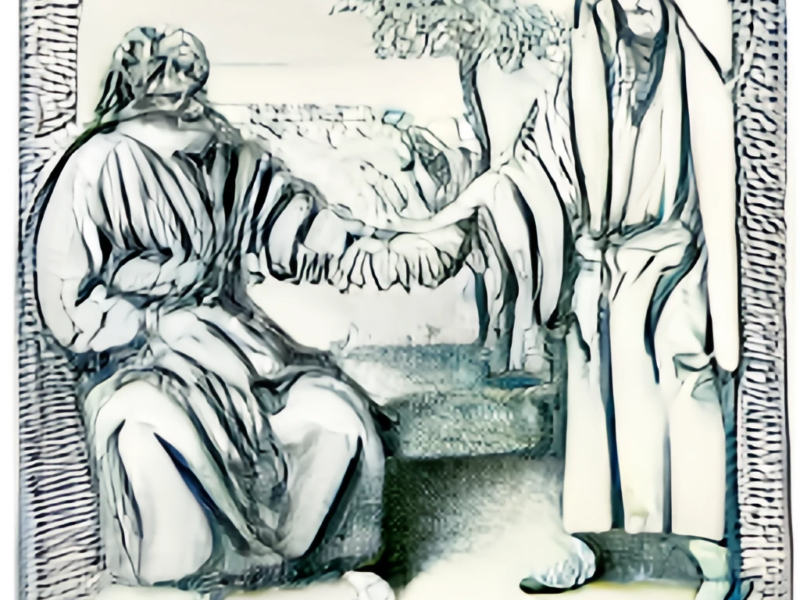The University Bible Fellowship (UBF; Korean: 대학생성경읽기선교회) is an international evangelical non-denominational Christian entity that originated in South Korea in 1961. It was founded through a partnership between a Korean, Samuel Chang-Woo Lee, and Sarah Barry, an American Presbyterian missionary who was sent to South Korea. The international headquarters of UBF is in Chicago. The group members are concentrated in South Korea, but has chapters in 91 countries including American universities and community colleges. The organization’s stated goal is student evangelism.
UBF began in South Korea as a student movement built around one-on-one teaching sessions for college students using the Bible and instilling the founders’ version of Shepherding Movement teachings. In 1964, UBF began expanding its campus presence through missionary work in South Korea. In 1966, the group established their headquarters in Seoul. In the 1970s, UBF began expanding to North America and is mentioned in the group of campus ministries who actively engaged in student recruitment to create Bible-based societies. In 1975, the organization became incorporated as a non-profit organization in the United States, in the state of Mississippi. Soon after the incorporation, the organization’s international headquarters was relocated from Seoul to Chicago. They continued to establish chapters on college campuses in Africa, Europe, South America, Asia, Oceania, and North America. In 2020, Wheaton College (Illinois) partnered with the Chicago chapter of the group to provide a cross-cultural ministry certification.
Reactions to the group’s recruitment efforts on college campuses have been a mixed bag. Some regard the group as a self-supporting missionary model. Others have, at times, limited or banned the group from practicing their on-campus recruiting efforts, such as at University of Winnipeg (1989), University of Manitoba (1991), and University of Illinois (1993) The group has been documented by various religious watchdog organizations, such as the New England Institute of Religious Research, the Freedom of Mind Resource Center, and the Evangelical Center for World Survey. Some consider the group to be a hyper-evangelical Christian movement contributing to the restoration of Christianity in the United States and other countries. Other observers and former members describe the group as cult-like, excessively controlling, spiritually damaging, or abusive.
In the United States, the group is registered as a non-profit organization and registered with the Evangelical Council for Financial Accountability (ECFA). According to the ECFA, the group reported $2,149,367 of total revenue and $2,073,393 of total expenses for 2019. The group had $13,907,906 in net assets as of the end of 2019.
Source: https://en.wikipedia.org/wiki/University_Bible_Fellowship
The University Bible Fellowship (UBF) is an international Christian non-denominational entity that was founded in South Korea in 1961 by Samuel Chang-Woo Lee and Sarah Barry, an American Presbyterian missionary. The group’s goal is student evangelism and they have headquarters in Chicago, with chapters in 91 countries including American universities. UBF started as a student movement and expanded to North America and other countries in the 1970s. Reactions to the group have been mixed, with some regarding it as a self-supporting missionary model, while others have described it as cult-like, excessively controlling, or abusive. UBF is registered as a non-profit in the US and is a member of the Evangelical Council for Financial Accountability (ECFA). According to ECFA, UBF reported $2.1 million in revenue and $2.1 million in expenses for 2019 with $13.9 million in net assets. [ChatGPT]
Describe the strengths and weaknesses of this text.
Strengths:
- The text provides a brief overview of the University Bible Fellowship (UBF) organization.
- The text mentions the history and origin of UBF, its goal and expansion to different countries.
- The text mentions the reactions to the group, both positive and negative.
- The text mentions the financial information of the organization, including its status as a non-profit and membership in the Evangelical Council for Financial Accountability (ECFA).
Weaknesses:
- The text does not provide a comprehensive history of UBF.
- The text does not provide an in-depth analysis of the reactions to UBF, it only mentions that they have been mixed.
- The text does not provide a comprehensive examination of the financial information of UBF, it only mentions the revenue, expenses and net assets for 2019.
[ChatGPT]


